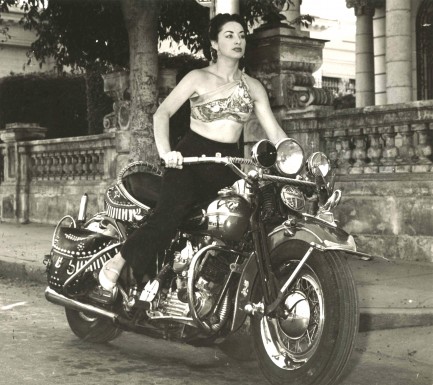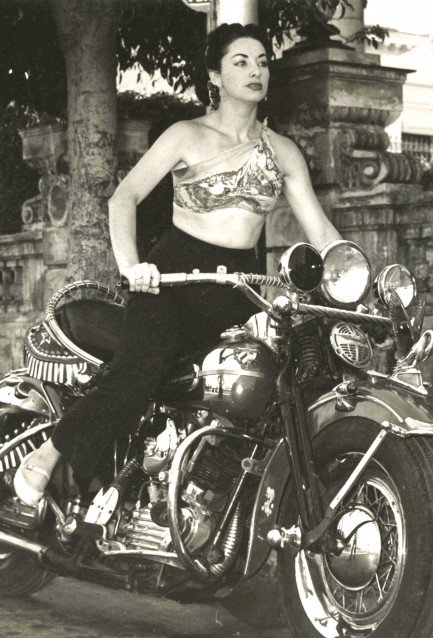| Musiquarium | Aug 7 2019 |

Two wheels, a road, and a full tank of gas.

Singer and dancer Lina Salomé poses on a monster motorcycle in Havana, Cuba, sometime in 1956. Born Luz de Peña Matos Estévez, she appeared onscreen seven times between 1952 and 1957. She had only one leading role, in the Mexican made Alma de acero, aka Soul of Steel. Another film, Los tres bohemios, appeared a month later, but the work dried up completely after that. However, we've seen her described as an iconic musical figure in Cuba, and this photo fits for someone remembered that way. It's probably just a publicity shot, but we like to think of her actually taking this machine to Matanzas on the Via Blanca, because a beast like this needs to eat a lot of road. If you want to see Miss Lina do a little song and dance, check this link while it lasts.





































































